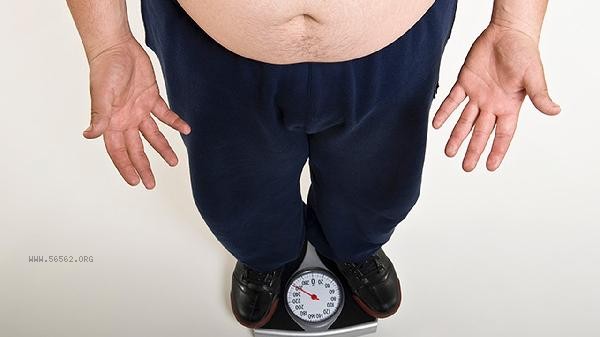Obesity may cause 15 kinds of health problems, including hypertension, diabetes, coronary heart disease, fatty liver, osteoarthritis, sleep apnea syndrome, hyperuricemia, gallbladder disease, infertility, depression, venous thrombosis, asthma, skin infection, kidney disease, cancer, etc. Obesity is closely related to factors such as metabolic disorders, chronic inflammation, and increased organ load.

1. Hypertension
Obese individuals experience an increase in body fat accumulation, leading to an increase in blood volume, peripheral vascular resistance, and increased cardiac load. The inflammatory factors secreted by adipocytes can damage the endothelial function of blood vessels and promote the production of vasoconstrictors. Long term hypertension may trigger stroke or myocardial infarction.
2. Too much visceral fat in diabetes
will interfere with insulin signal transmission, leading to insulin resistance. Long term overload of pancreatic beta cells may lead to functional failure. Obesity related diabetes may be accompanied by retinopathy, diabetes foot and other complications.
3. Coronary heart disease
Obese individuals often have abnormal blood lipids, and low-density lipoprotein cholesterol is prone to deposit on the coronary artery wall and form plaques. The free fatty acids released by adipose tissue may directly damage myocardial cells. The risk of acute coronary syndrome is significantly increased.
4. Fatty liver
Liver fat deposition exceeding 5% constitutes fatty liver, and obese individuals' liver triglyceride synthesis rate exceeds their decomposition capacity. Continued development may lead to liver fibrosis and even cirrhosis. Some patients may experience sustained elevation of transaminases.
5. Osteoarthritis
Overweight increases the weight-bearing capacity of the knee joint by 3-5 times, accelerating cartilage wear. Fatty factors promote joint inflammation and exacerbate pain symptoms. The hip joint and spine are also at risk of degenerative changes.
6. Sleep apnea
Neck fat accumulation compresses the airway, causing muscle relaxation during sleep and repeated breathing interruptions. Decreased blood oxygen saturation can cause daytime sleepiness, and long-term hypoxia may impair cognitive function.
7. Hyperuricemia
Obese individuals with abnormal purine metabolism increase uric acid production and decrease renal excretion function. The deposition of urate crystals may induce gouty arthritis, and in severe cases, gouty stones and kidney stones may appear.
8. Gallbladder diseases
Cholesterol supersaturated bile can easily form gallstones, and obese individuals have weakened gallbladder contraction function. Gallstone entrapment may cause acute cholecystitis, and recurrent episodes require surgical removal of the gallbladder.

9. Infertility
Obesity in women interferes with the function of hypothalamus pituitary ovary axis, and the incidence rate of polycystic ovary syndrome increases. Male adipose tissue converts androgens into estrogen, which affects sperm quality.
10. Depression
The psychological pressure caused by body type discrimination and the impact of fat factors on neurotransmitters work together. Some patients experience a vicious cycle of binge eating and depression, requiring psychological intervention combined with weight loss treatment.
11. Venous thrombosis
Increased blood viscosity and obstruction of lower limb venous return pose a risk of thrombosis formation. Deep vein thrombosis may occur during prolonged sitting, and thrombus detachment can lead to life-threatening pulmonary embolism.
12. Asthma
Abdominal fat restricts diaphragm movement, while adipokines promote airway hyperresponsiveness. Obese asthma patients have poor response to conventional drug treatment and more difficult symptom control.
13. Skin Infection
Moist environments at the folds of the skin are prone to the growth of fungi and bacteria. Lower limb lymphatic reflux disorders may lead to chronic skin ulcers and significantly slow wound healing.
14. Kidney disease
The state of glomerular hyperfiltration accelerates the damage of renal function, and obesity related diabetes and hypertension are the main incentives. Proteinuria may occur and progress to renal failure.
15. Cancer
Estrogen produced by adipose tissue and insulin-like growth factor promote abnormal cell proliferation. The risk of endometrial cancer in obese women increased fourfold, and the incidence rate of colon cancer and breast cancer increased significantly.

To control weight, it is necessary to establish a scientific diet plan, with a daily calorie intake of about 500 calories less than expenditure. Increase aerobic exercise such as brisk walking, swimming, etc., with at least 150 minutes of moderate intensity exercise per week. Ensuring 7-8 hours of high-quality sleep helps regulate leptin levels. Regularly monitor indicators such as waist circumference and body fat percentage to avoid malnutrition caused by excessive dieting. When obesity related complications occur, timely medical attention should be sought, and personalized weight loss plans should be developed under the guidance of a doctor.









Comments (0)
Leave a Comment
No comments yet
Be the first to share your thoughts!